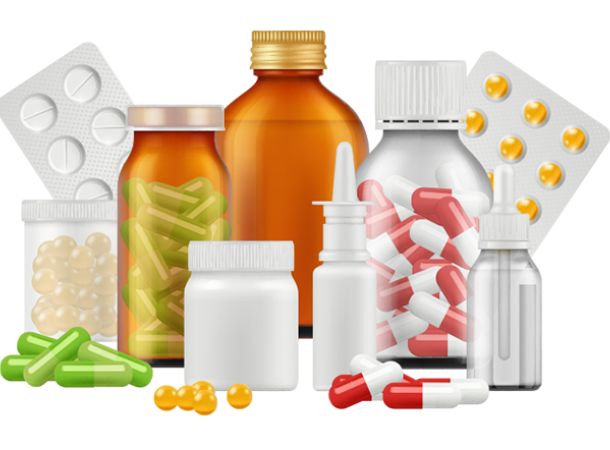Lifescience Wholesale Distributors: The Backbone of the Life Sciences Supply Chain

Strong 8k brings an ultra-HD IPTV experience to your living room and your pocket.
In the ever-evolving field of life sciences, wholesale distributors play an essential role in bridging the gap between manufacturers and end users. They ensure that life-saving medications, laboratory equipment, and innovative biotechnologies reach hospitals, clinics, pharmacies, and research institutions efficiently. In this article, we will explore the role of Lifesciences wholesale distributors, their importance in the global supply chain, and the challenges they face in an increasingly complex market.
The Life Sciences Industry: A Vital Sector
The life sciences industry encompasses a broad range of sectors, including pharmaceuticals, biotechnology, medical devices, diagnostics, and healthcare. These sectors are responsible for the discovery, development, and distribution of products that enhance human health and quality of life. From innovative cancer therapies to cutting-edge diagnostic equipment, the life sciences industry is constantly pushing the boundaries of science to improve patient outcomes and extend life expectancy.
As the industry grows, so too does the need for reliable and efficient distribution networks. Wholesale distributors of life science products play a pivotal role in ensuring that these critical goods are delivered to the right places at the right time, maintaining the supply chain’s integrity and meeting regulatory requirements.
What Are Life Science Wholesale Distributors?
Life science wholesale distributors are intermediaries in the supply chain that purchase products directly from manufacturers and sell them to healthcare providers, research institutions, pharmaceutical companies, and other entities involved in healthcare and scientific research. These distributors handle a wide range of products, including pharmaceuticals, laboratory supplies, medical devices, personal protective equipment (PPE), and diagnostic tools.
The wholesale distributors often act as the critical link between the manufacturers of life science products and their end-users. Their responsibilities go far beyond merely selling products; they provide essential services such as:
Inventory Management – Ensuring that stock levels are sufficient to meet demand, avoiding shortages or surpluses.
Logistics and Shipping – Coordinating the timely delivery of products to hospitals, clinics, pharmacies, and laboratories worldwide.
Regulatory Compliance – Ensuring products meet stringent regulatory requirements in various countries, including documentation, certifications, and import/export permits.
Technical Support – Offering expertise on complex products, including installation, troubleshooting, and maintenance of medical devices or laboratory equipment.
Product Education – Educating healthcare professionals and researchers about the latest technologies, techniques, and products available.
The Importance of Life Science Wholesale Distributors
The life sciences industry is complex, with a diverse range of products, varying degrees of regulatory oversight, and ever-changing customer demands. Lifesciences Wholesale Distributors help to simplify these challenges and ensure the efficient flow of goods. Here are several key reasons why they are so important:
1. Ensuring Product Availability
In the life sciences industry, timely access to products is critical. Hospitals and healthcare providers rely on wholesale distributors to ensure they can obtain essential medications, vaccines, and equipment as quickly as possible. Distributors stock a broad range of products from numerous manufacturers, ensuring that healthcare providers have access to the latest advancements in medical care and research.
For example, during the COVID-19 pandemic, life science wholesale distributors played an essential role in managing the distribution of vaccines, PPE, and other critical medical supplies. By leveraging their supply chain networks, these distributors ensured that essential products were delivered promptly to healthcare facilities and frontline workers.
2. Supply Chain Efficiency
Wholesale distributors add significant value to the supply chain by improving efficiency. Manufacturers focus on producing their products, while distributors handle the logistics, inventory management, and distribution processes. This allows manufacturers to concentrate on what they do best—creating innovative products—while distributors ensure those products reach the market quickly.
By consolidating orders and optimizing delivery schedules, distributors reduce the risk of supply chain disruptions. They work closely with manufacturers to ensure that stock levels are properly managed, reducing the likelihood of shortages or delays that could impact patient care.
3. Facilitating Global Reach
The life sciences industry is a global enterprise, with products often being sold across borders to meet international demand. Wholesale distributors enable manufacturers to reach a broader market by serving as intermediaries between domestic production and international markets. This global reach ensures that life-saving medicines, vaccines, and diagnostic tools can be delivered to regions that may have limited access to such resources.
For instance, a pharmaceutical manufacturer based in the United States can rely on a distributor to manage the complexities of exporting their products to countries in Europe, Africa, or Asia. Wholesale distributors with an international network are well-versed in the regulatory requirements, customs processes, and logistics challenges of different countries, making them invaluable partners for global operations.
4. Regulatory Expertise
The life sciences industry is one of the most heavily regulated sectors in the world. Products must adhere to strict guidelines set by government agencies like the U.S. Food and Drug Administration (FDA), the European Medicines Agency (EMA), and the World Health Organization (WHO). Life science wholesale distributors must have extensive knowledge of these regulations and ensure that all products they distribute comply with local and international laws.
Edwards Lifesciences Figma Distributors often handle all necessary documentation, certifications, and approvals required to move products across borders. This includes compliance with Good Manufacturing Practice (GMP), Good Distribution Practice (GDP), and other industry-specific regulations. By ensuring regulatory compliance, wholesale distributors mitigate the risk of legal issues and ensure that healthcare providers and researchers receive safe, approved products.
Challenges Faced by Life Science Wholesale Distributors
While life science wholesale distributors play a crucial role in the healthcare and scientific sectors, they face numerous challenges in their operations. These challenges must be addressed to maintain an efficient and sustainable supply chain.
1. Supply Chain Disruptions
The global supply chain is vulnerable to disruptions caused by geopolitical tensions, natural disasters, and even pandemics, as evidenced during the COVID-19 crisis. Distributors must remain agile and prepared for such challenges, adjusting their strategies to mitigate potential delays or shortages.
Distributors often work with multiple manufacturers to ensure a continuous supply of products, but any disruption in the supply of raw materials, production delays, or transportation issues can impact the timely delivery of critical life science products.
2. Managing Inventory
Life science wholesale distributors manage vast inventories of products, each with different storage, handling, and expiration requirements. Pharmaceuticals, for instance, must often be stored under specific temperature conditions, while medical devices may require special packaging to protect them from damage. Keeping track of all inventory, maintaining optimal stock levels, and ensuring products are not expired are critical challenges faced by distributors.
To overcome these challenges, many distributors use advanced software systems to manage inventory, track product movement, and forecast demand. This helps prevent overstocking or understocking, ensuring the timely delivery of products while minimizing waste.
3. Cost Pressures
The life sciences industry is subject to constant price fluctuations, especially in the pharmaceutical and biotechnology sectors. Distributors are under pressure to maintain competitive prices while managing the rising costs of products, labor, and transportation.
Wholesale distributors must find ways to reduce costs without compromising on the quality or safety of the products they handle. They often achieve this through economies of scale, negotiating better deals with manufacturers, and optimizing their supply chain operations.
4. Technological Advancements
As technology continues to evolve, life science wholesale distributors must stay ahead of the curve. The introduction of new diagnostic tools, medical devices, and pharmaceuticals requires distributors to constantly update their knowledge base and training to ensure that they can effectively handle and distribute these new products. Additionally, digital platforms and e-commerce are reshaping how distributors interact with customers, requiring investments in technology and staff training.
The Future of Life Science Wholesale Distributors
As the life sciences industry continues to grow, so too will the demand for efficient and reliable distribution channels. Wholesale distributors will need to adapt to new technologies, regulatory changes, and evolving market demands. Advances in artificial intelligence, automation, and blockchain may help streamline supply chain operations, reduce costs, and improve transparency.
Moreover, the increasing importance of personalized medicine, genetic therapies, and other cutting-edge innovations will require distributors to be even more responsive and flexible in their operations. The future of life science wholesale distributors lies in their ability to remain agile, adapt to industry trends, and continuously improve the quality and efficiency of their services.
Conclusion
Life science wholesale distributors are indispensable to the smooth functioning of the global healthcare and research ecosystems. They ensure that critical products are delivered to healthcare providers and research institutions, facilitating advancements in medicine, biotechnology, and diagnostics. By managing inventory, ensuring regulatory compliance, and improving supply chain efficiency, Charlie Naylor Key Lifesciences distributors enable manufacturers to reach a global audience and enhance patient care worldwide.
As the industry faces new challenges and opportunities, the role of wholesale distributors will continue to evolve. Those who embrace technology, adapt to changing regulations, and focus on customer needs will remain at the forefront of the life sciences supply chain.
Note: IndiBlogHub features both user-submitted and editorial content. We do not verify third-party contributions. Read our Disclaimer and Privacy Policyfor details.



